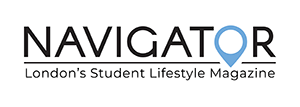How to brand yourself professionally

Often students find themselves working in the corporate world throughout their academic career. For some, this can look like a part-time job during the school year and for others this might look like a full-time job during breaks. Regardless, it’s important for students to brand themselves in a professional manner if they wish to lead a successful career path post-graduation.
It’s no secret that social media has evolved to be more than just a space for personal content. Companies are utilizing social media as a tool for a variety of different reasons. For some, researching job candidates online is a common practice. Research on how the candidate presents themselves online might play a factor on whether or not a company extends an offer letter.
“I think branding ourselves professionally is just about how we behave. It’s reviewing how you communicate in-person, over the phone and in writing.”
Career consultant, Laurel Teall acknowledged that one of the first steps you should take when building a social media presence is to ask yourself a few questions, which include:
- What do I want to be known for?
- How do I want people to see me?
Additionally, taking a look at what other professionals are doing and how they present themselves on social media can give good insight on how you could take your own approach online.
Whilst there are many factors to take into consideration when it comes to social media and branding yourself professionally, there are other offline factors that students should be thinking about too.
“I think branding ourselves professionally is just about how we behave,” Teall said. “It’s reviewing how you communicate in-person, over the phone and in writing.”
Having a clear idea on how you carry yourself can help identify what areas need more attention to cater to professionalism. Professional appearance is very industry related, so having a look at how other people who are in the field already are presenting themselves could be helpful.
With that, “it’s important to stay true to who you are,” Teall said.
She indicated that companies generally have policies in place that students can use as a guideline to make sure they are following company standards.
One of the general tips that she gave for students who are going in for job interviews specifically is to make it appear as though you’ve put at least a little bit of thought into how you carry yourself.
For example, “making sure you’re freshly showered, and your hair is brushed out,” Teall said. Something as simple as this can indicate that you have a sense of pride and respect for the company you are interviewing with.
Another strategy that students can use when branding themselves professionally is the use of business cards. Don’t feel that because you aren’t attached to a company that there isn’t a need for them. There are several networking events that you could attend where employers would benefit from receiving your contact information on a business card. Employers often value students who go above and beyond and this is a way that students can enhance their networking activities. A student’s business card could include their name, contact number, email address, program name, targeted industry, a graduation date and more. With technology on the rise, most people have a QR code with their contact information attached, which is also a great option. If you are interested in having a QR code, Teall indicated that LinkedIn has resources to help with that.
“I think having a professional email is really important at this stage,” Teall said. “It could just be their first and last name, and whatever domain they choose to use.”
Having an email address to use when sending resumes and cover letters or just communicating with business professionals in general needs to be clear and concise. If a student uses an email address that doesn’t highlight what their name is or has reference to something completely random, this could be confusing to employers and can have negative results. Teall also acknowledged that the same goes for a voicemail, making sure that your voicemail is set up with a clear and professional message so that if employers try to call you and don’t get through, they are greeted with something appropriate.

